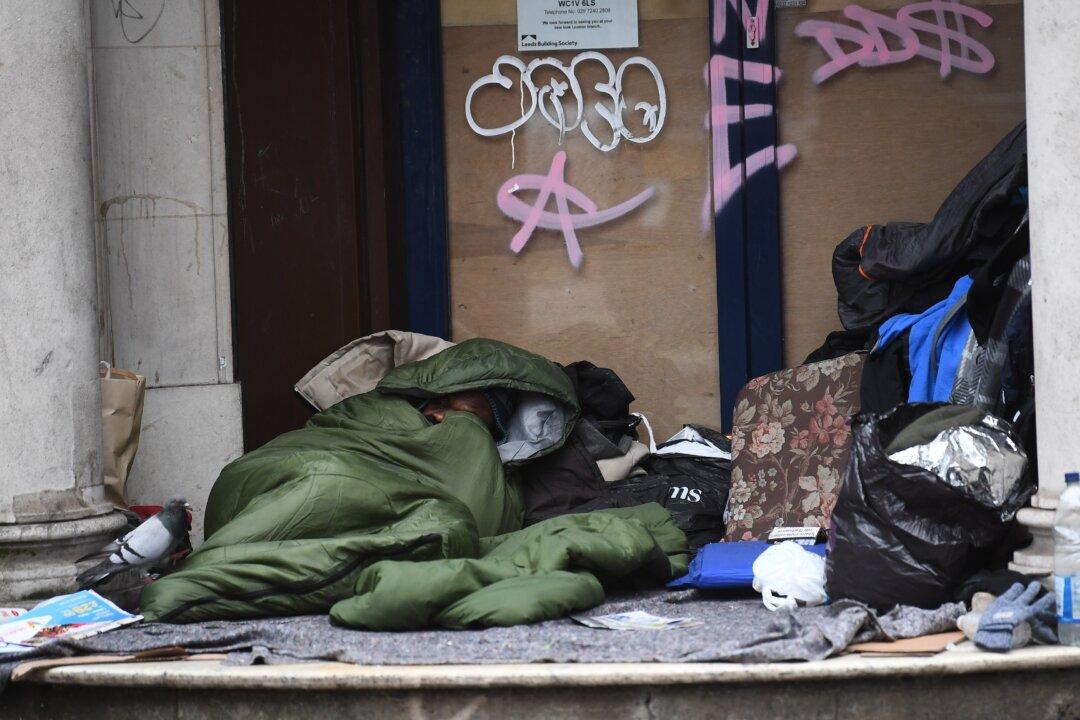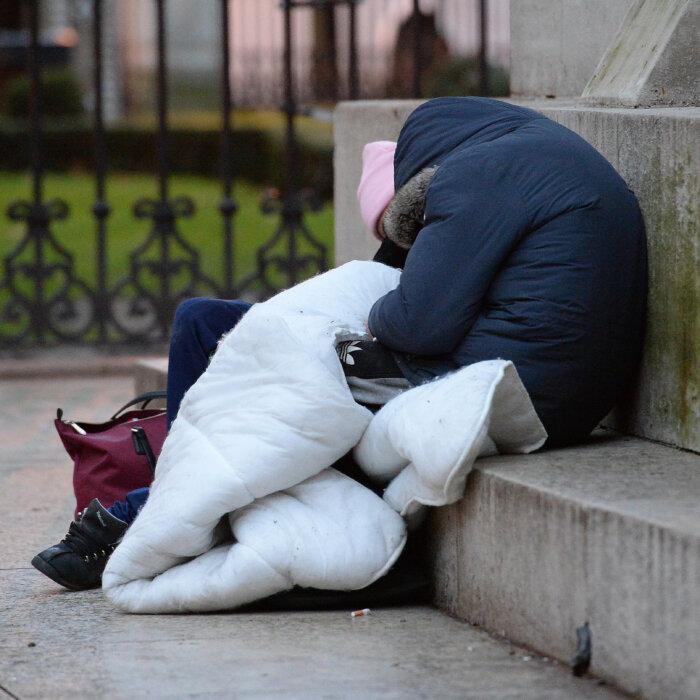New research has recorded a 12 percent increase in deaths among homeless people in 2023, prompting calls for urgent government action.
This is a 12 percent increase on the numbers recorded by the study in 2022, when 1,313 deaths were recorded. Within those figures, the deaths of people sleeping rough spiked by 42 percent from 109 to 155 in a year.
The community-driven social justice museum, based in London, gathers data via Freedom of Information requests, coroners’ reports, charities, or family members.
Its report found stark regional disparities in homeless deaths, with London remaining a hotspot, where 309 deaths were recorded in 2023. Homelessness is not just an urban issue confined to the capital, with data showing that people in rural areas of England are dying up to 10 years younger.
Outside of London, the report recorded a sharp increase in mortality rates in the northeast.
“We are deeply concerned that people who experience homelessness in Northern England are hit with a double blow of inequality; not only by the experience of homelessness but also by the far-reaching intergenerational inequalities felt time and again by northern towns and cities. Fifteen years of austerity has made this much worse and we need urgent action from the new government,” said the museum’s strategic lead, Gill Taylor, in a statement.
Causes
A number of systemic failures can lead to homelessness, including cuts to local authority budgets, inadequate mental health services, a lack of affordable housing, and issues with substance misuse.The impact of the cost-of-living crisis is another significant driver. Rising rents, skyrocketing energy costs, and inflation have disproportionately affected vulnerable groups, pushing more people into homelessness.
Experts pointed to several causes behind the rising number of deaths, including the so-called “deaths of despair,” where deaths are linked to alcohol, drugs, and suicide. This category makes up the largest proportion of causes of deaths among those experiencing homelessness.
At least 39 people experiencing homelessness died by suicide in 2023, the report said, with people under the age of 35 accounting for almost half of the cases.
Preventable Loss
The authors of the report described the deaths as “needless and preventable,” and warned that without immediate action, the crisis will continue to worsen.“The systems of care for people living with poverty and homelessness is in tatters after 15 years of cuts and corruption. This could not be laid out more starkly than in these findings. As yet the new government has not set out plans to mitigate the damage caused by the last government. Our analysis indicates things are set to get much grimmer, unless the government acts now to save lives,” said the museum Co-founder Matt Turtle.
The project said that further investment in affordable housing should be a priority for the government. It urged policymakers to provide more funding and support to councils, working to provide emergency accommodation.
The Ministry of Housing, Communities, and Local Government plans to set up a dedicated cross-party government group to work on ending homelessness.
“Councils and their partners deliver vital work to tackle rough sleeping including drug and alcohol treatment and wrap around support. Funding allocations will be set out following the Budget,” a ministry spokesperson said.
Ministers have also secured £68 million for 54 councils to develop abandoned brownfield sites into new homes. Local authorities will be able to use the funding to cover the costs of decontamination, clearing disused buildings, and improving infrastructure, such as internet, water, and power.







